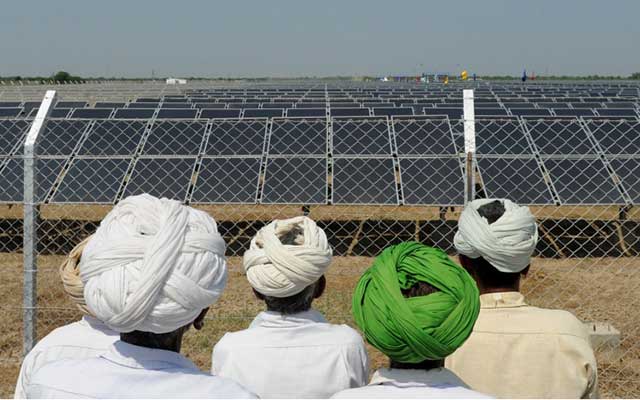Despite policies and net metering guidelines in several states, a subsidy of 30 percent offered by the Ministry of New and Renewable Energy (MNRE), the installation of solar rooftop systems has been dismal in leading metros in the country, says a Greenpeace India analysis.
The analysis titled, ‘Indian cities slacking on rooftop solar’ especially names two cities Chennai and Mumbai slacking on rooftop solar adoption. Mumbai, which has a potential of 1,720 MW has only 5 MW overall installed till now. The entire state of Tamil Nadu has less than 2 MW as against a rooftop solar target of 350 MW.
Delhi, which offers a Generation Based Subsidy as per the Solar Policy released last year, as well as net metered connections, has also failed to see a big uptake in the residential sector.
Delhi’s total solar potential is 2,500 MW with a residential potential of 1,250 MW. The official target in Delhi is to reach 1,000 MW worth solar installations by 2020 and 2,000 MW by 2025. But as of December 2016, only 35.9 MW have been installed out of which, only 3 MW were residential installations in March 2016.
The MNRE has earmarked 40 GW as the rooftop solar target by 2022. As of December 2016, installations had just crossed 1 GW. The reasons for the slow uptake seem to be lack of familiarity with the process and fear of bureaucratic red tape, Greenpeace said. Besides this, net metering provisions are present in most states, but effectiveness of implementation varies significantly.
“Despite the national incentive in the form of a 30% capital subsidy, and a range of state incentives and schemes, rooftop solar is yet to take off in the same manner as large-scale solar,” said Pujarini Sen, Climate and Energy Campaigner, Greenpeace India.
“However, this does not mean India should lower its ambitious targets, as some have suggested, Sen added. Rather, the government must step up and play a more proactive role in encouraging rooftop installations. This can be via innovative financing schemes, aggregating demand and incentivizing city and state governments.”
“The potential benefits in terms of reduced energy expenditure and cleaner air due to reduced demand on fossil fuels are too significant to be ignored. As the convenor and a founding member of the International Solar Alliance, and a country with abundant solar potential, India’s commitment to clean energy must continue to be robust,” says Sen.
Air pollution leads to 1.2 million deaths every year according to a Global Burden of Disease study. Decarbonising the power sector is essential in tackling the menace of air pollution.
A poll conducted by Greenpeace suggests significant public interest in adopting rooftop solar. Close to 55 percent of the 812 survey respondents from our supporter base expressed interest in investing in and installing solar, the report said.
“There is still a widespread perception that installation of rooftop solar panels needs a large investment, and people are not always aware of the financial incentives available. If central and state governments are serious about boosting solar, they must do a better job of reaching out to resident welfare associations and community groups to encourage people to shed their inhibitions and embrace rooftop solar,” says Sen.
editor@greentechlead.com

